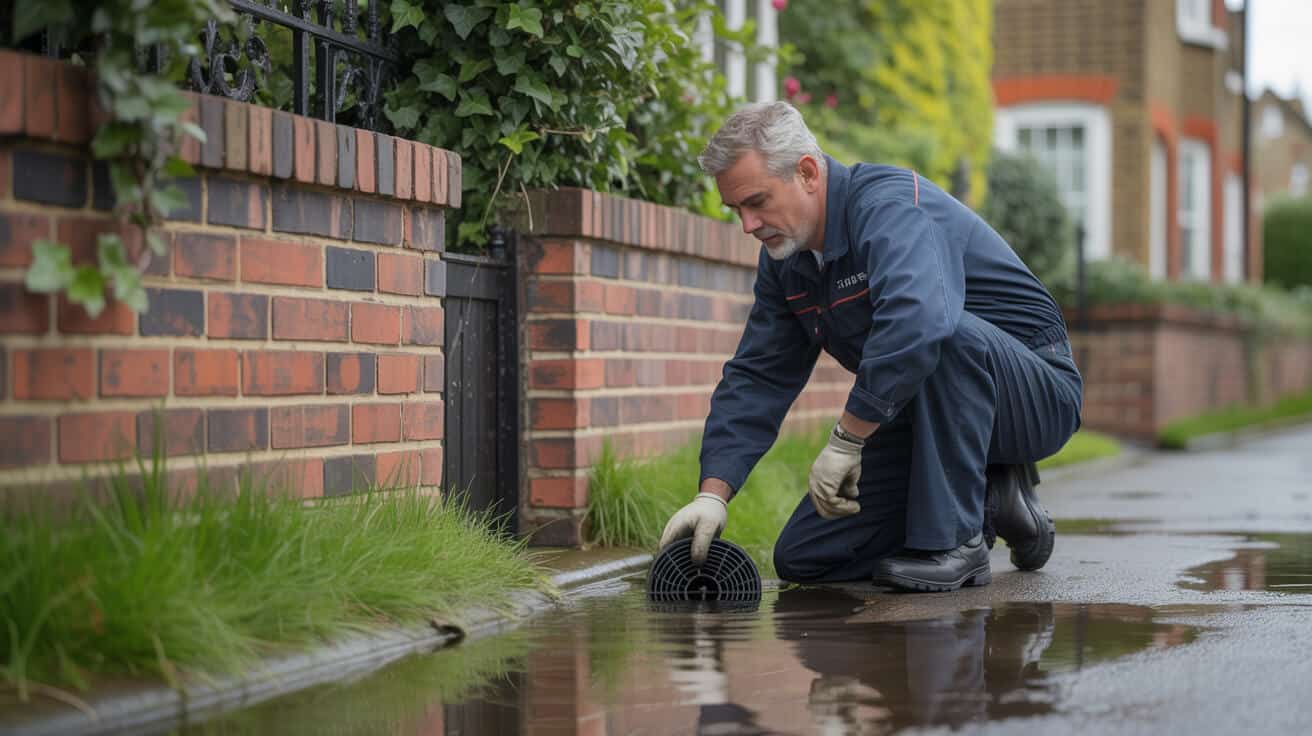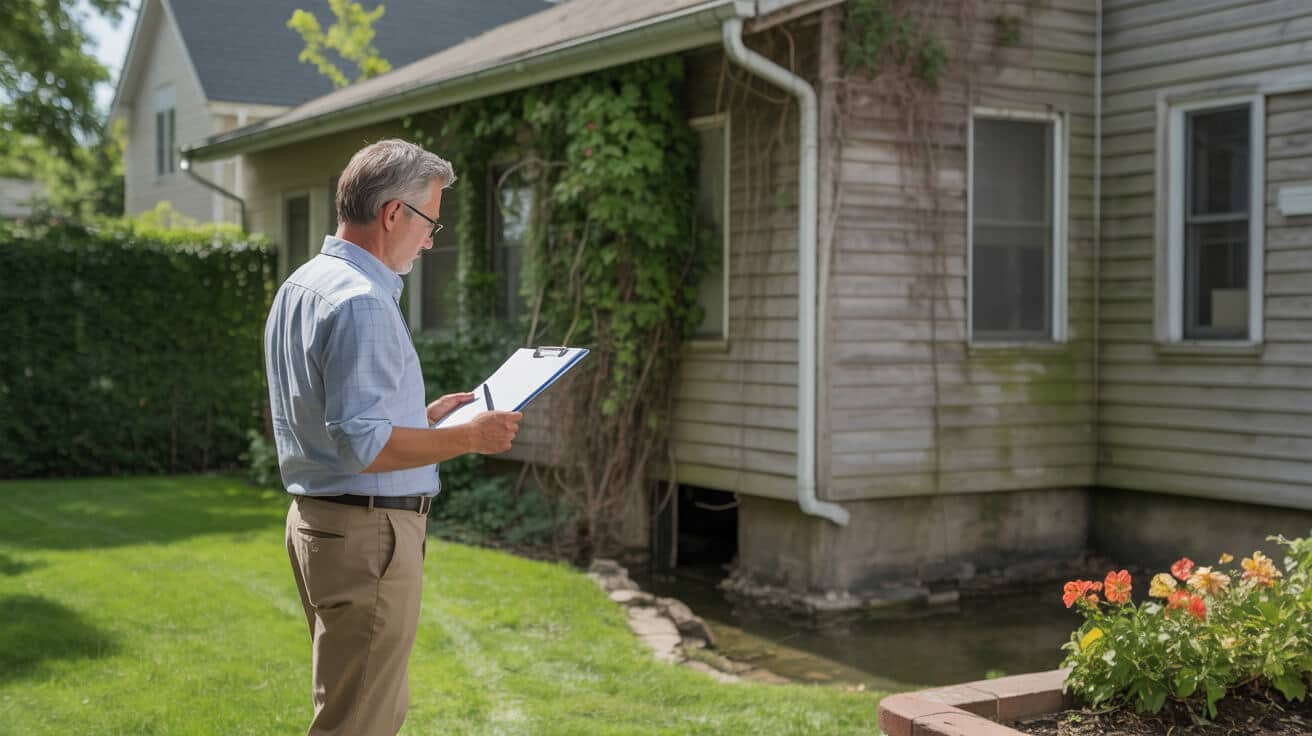 Essential Repairs Landlord Duties for Boilers and Water Systems
Essential Repairs Landlord Duties for Boilers and Water Systems
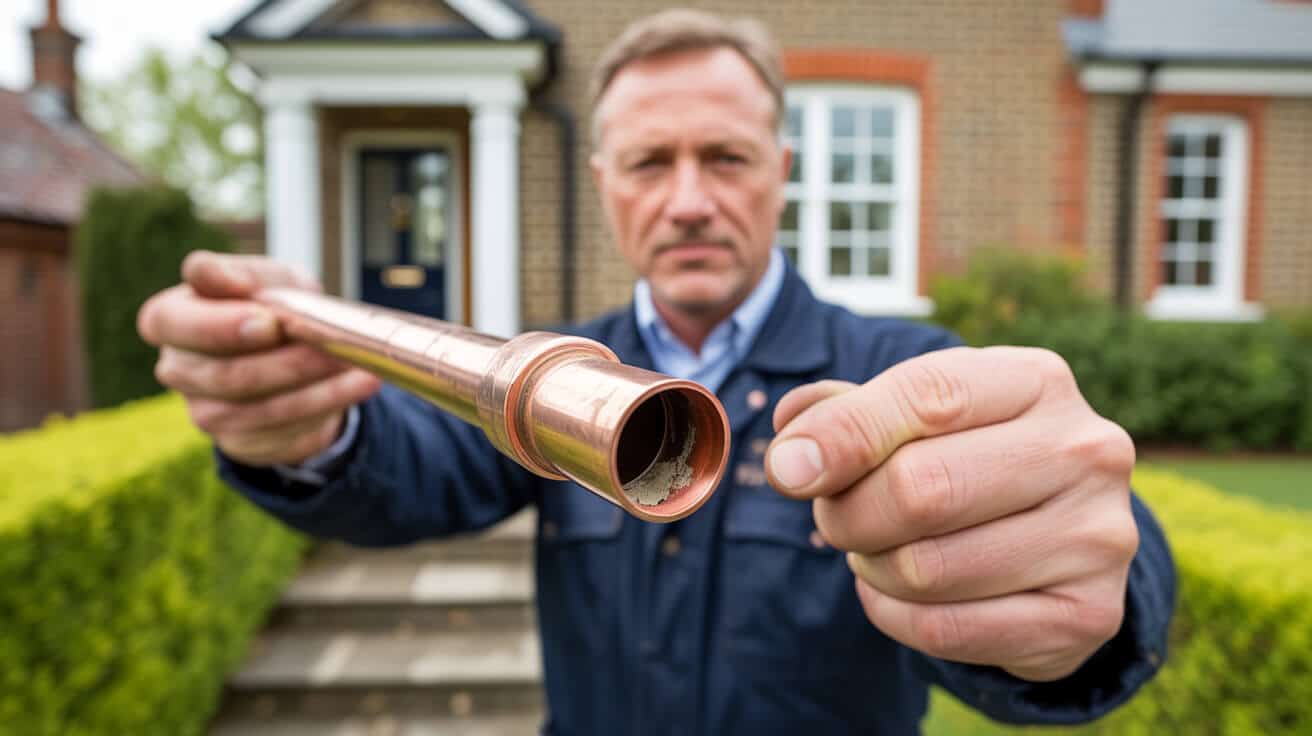
Are You Legally Liable for Boiler and Water System Repairs? The Duties Landlords Overlook—And What Gets You Fined
Every landlord who thinks boiler or plumbing problems are “just another tenant grumble” needs to face a stubborn truth: the law makes you, not the tenant, the owner of every heating and water system issue—from blocked pipes to faulty cylinders and beyond. It’s a legal burden written in black and white. No DIY addendum, subletting clause, or letting agent contract will erase your statutory duties. If it heats, pressurises, delivers hot water, or sanitises, responsibility sits squarely with you.
When a boiler breaks, your responsibilities ignite. No shortcut or ‘DIY fix’ changes the law.
Simply holding a Gas Safe or G3 certificate isn’t a free pass. Today, property licencing schemes and more astute tenants demand a watertight paper-trail—incomplete logs or gaps in compliance can get you fined or even lose your licence. It doesn’t matter if you manage a single flat or multiple HMOs; legislative focus is moving toward landlords who can prove, not just promise, fast, professional, and fully compliant repairs.
Let’s be clear: every missed deadline, lost certificate, or poorly documented repair puts your income, property value, and rental future at risk. The solution is not just “fixing boilers” but building a robust, audit-ready maintenance and documentation flow that leaves you bulletproof when the council calls or a tenant challenges you.
What Repair Responsibilities Must Landlords Meet—and Why Can’t You Shift the Risk?
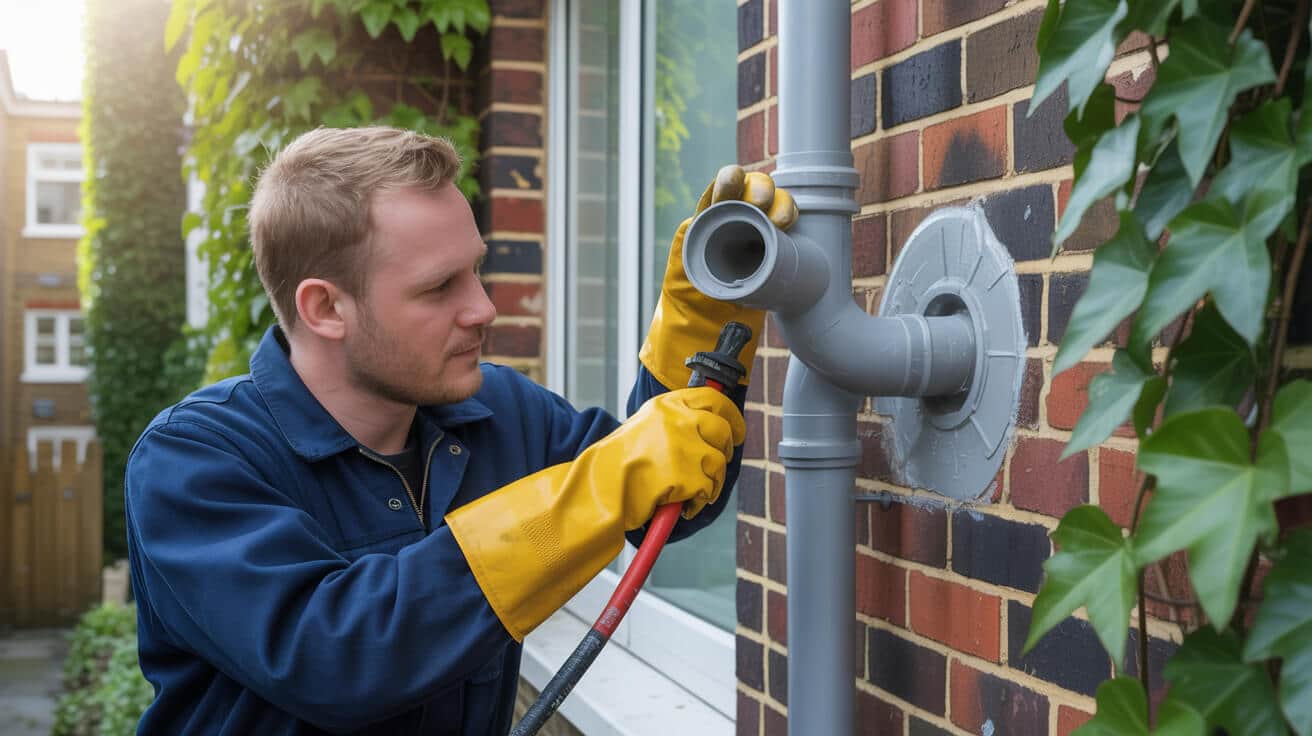
Statute and contract are very different beasts in property law. Section 11 of the Landlord and Tenant Act 1985 and the Homes (fitness for human habitation) Act 2018 tie every landlord to a strict, non-delegable duty: you must maintain the structure, supply of gas, electricity, water, sanitation, and heating systems in proper working order. No “tenant handles repairs” clause can override this.
Your tenant’s job is to report a problem—not to solve it, not to manage handymen, not to “patch” with temporary fixes that risk further damage or legal comeback. Trying to offload, delay, or bypass these duties by shifting them onto tenants, agents, or contractors creates a compliance minefield—and can cost you dearly in court or before the council.
You handle the repairs and paperwork; the tenant’s only job is to report issues as soon as they crop up.
Your landlord duties for heating and water systems include:
- Restoring supply rapidly: after loss of heat, hot water, or water pressure—*waiting for a tenant to “source a tradesman” is not an option.*
- Responding at speed to leaks, blockages, or failures: in pipes or heaters that create loss of service, property damage, or health risk.
- Repairing or replacing failed boilers, tanks, cylinders, or hot water components: —even mid-tenancy.
- Fixing water quality issues: (odour, discolouration, persistent low pressure) *regardless of age or “fair wear” argument*.
- Tackling noisy, unreliable, or unsafe heating: —from faulty thermostats to inconsistent radiator performance.
If a tenant’s complaint about heating or water supply is escalated—to the council, housing ombudsman, or the courts—you’ll be asked not “did you try?” but “can you prove you acted instantly and used suitably accredited professionals?” Paperwork is your armour; guesswork is quicksand.
What Penalties Apply If Boiler and Water System Repairs Fall Short?
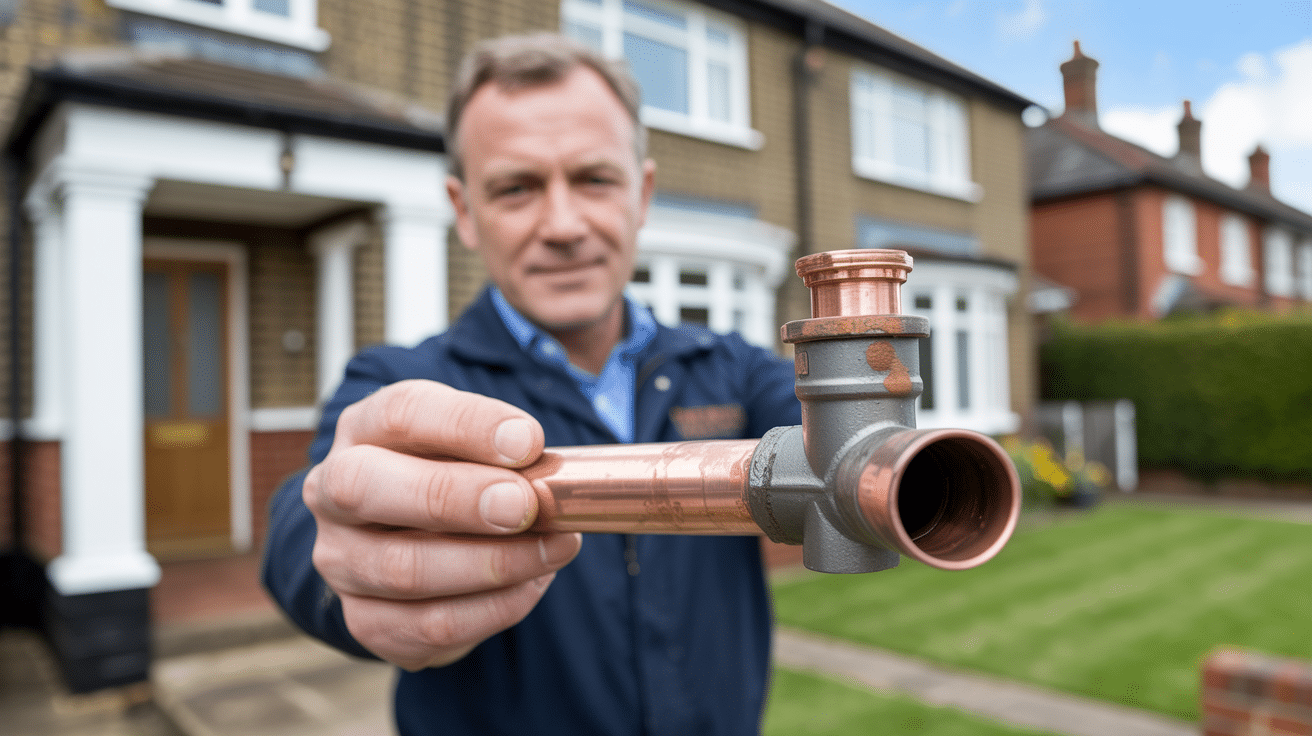
Property enforcement arms are no longer toothless—the Housing Act 2004 and the Homes (Fitness for Human Habitation) Act 2018 now empower councils to levy penalties up to £30,000 per violation. That’s one missed certificate, one ignored urgent repair, or one “handyman” bodge away from your annual rent lost, or worse.
Failing to prove you handled an urgent repair—especially for vulnerable tenants—could cost your entire year’s rent.
Frequent triggers for enforcement or fines:
- Missing Gas Safe (CP12) certificate: or out-of-date engineer qualification for any property’s boiler or gas appliance.
- Delayed emergency response: —particularly for families, the elderly, or HMOs in winter.
- Using non-Gas Safe, unqualified or uninsured contractors: (including for unvented cylinder or G3 work).
- Incomplete or messy job records: —lost G3 paperwork, no photos, missing engineer details.
- Tenant escalation: —as soon as a council or housing office sees a complaint with emails, photos, and timelines, you not only lose control—you risk spot checks, compulsory improvement orders, and immediate claims.
Poor documentation isn’t just a paperwork headache; it can lead to rent repayment orders, enforced repairs, suspended or revoked licences (especially for HMOs and selective licencing areas), and even large compensation payouts to tenants. Reliable, accredited, and well-documented repairs aren’t “best practice”; they’re your basic defence.
Is Your Repair Documentation Actually Good Enough to Shield You?
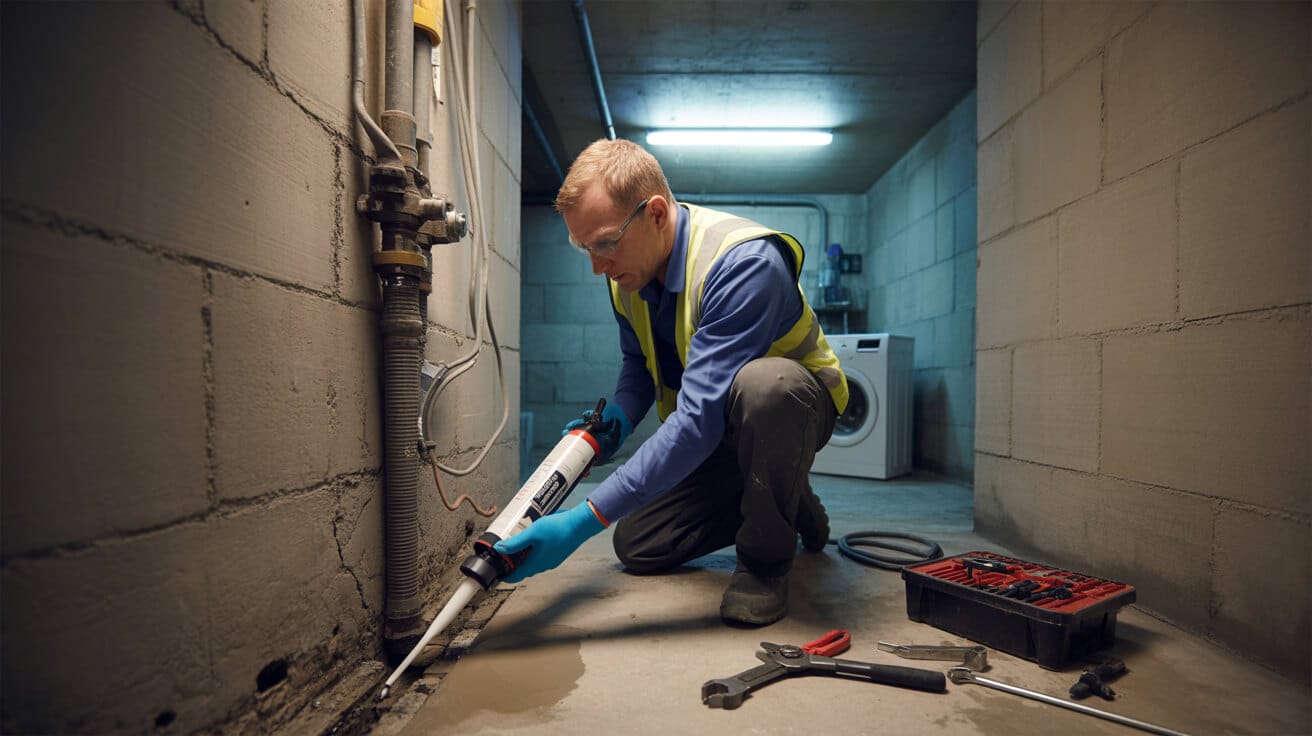
Documentation is your legal shield. Gone are the days when an expired CP12 and a half-filled paper log would pass muster. Auditors, housing officers, and the courts expect a unbroken digital or hard-copy chain: initial report, response time, engineer credentials, job sheet (with before/after photos), part codes, final tenant sign-off, and follow-up records.
Well-maintained records quickly de-escalate disputes before they cost you time or money.
Steps to Build an Unbreakable Compliance File
- Log every repair request: —timestamped, regardless of whether reported by email, app, or phone.
- Acknowledge swiftly in writing: —show your promptness with an email, text, or chat screenshot.
- Store engineer job sheets: —with names, accreditations (Gas Safe, WRAS, G3), part numbers, and signature or digital handover.
- Keep up-to-date CP12, G3, and landlord gas or water safety certificates: —for a minimum two years, ideally longer.
- Add before/after photos: —with time/date stamps and, when possible, tenant and engineer sign-off.
- Centralise communication logs: —so every discussion, question, and update is in one file, not scattered.
| Record Type | Who Issues | Minimum Retention |
|---|---|---|
| Gas Safe (CP12) Certificate | Gas Safe Engineer | 2 years |
| G3 Certificate (Unvented HW) | G3 Qualified Engineer | End of tenancy |
| Engineer Job Sheet + Photos | Plumbing/Heating Engineer | Ongoing |
| Tenant/Agent Report Logs | You or Letting Agent | Ongoing |
A well-kept digital or paper file isn’t micromanagement—it’s your “get out of penalty” card.
How Fast Must Landlords Fix Heating, Hot Water or Leaks—And What Defines “Urgency”?

Delays in urgent repairs are the number one source of tenant complaints and fines. “Prompt” isn’t a fuzzy word—anything that cuts heating, hot water, or causes water leakage must be logged and shown to be in motion within 24 hours (yes, even on weekends and holidays).
If you can’t prove you responded and started the repair process inside 24 hours, you’re exposed to penalty and possible compensation claims.
Stepwise Urgent Repair Routine
- Log the report: Every call, text, or email needs a timestamp and is best acknowledged to the tenant in writing.
- Book a qualified engineer: For boilers and heating, Gas Safe accreditation is non-negotiable. For unvented cylinders, it’s G3. For plumbing supply or backflow, WRAS applies.
- Update the tenant: Detail when the engineer will arrive, any delays, and keep evidence of communications.
- Track every action: Recordings, logs, booking confirmations, engineer ID—all stored together for access during audit, complaint, or claim.
Landlords too often default to “handyman” fixes when specialist callouts feel costly or inconvenient. This is a false economy: unauthorised repairs often void gas/water certification, insurance, or both, compounding risk with “good intentions.”
How Much Evidence Do You Need To Prove Proper Repairs?
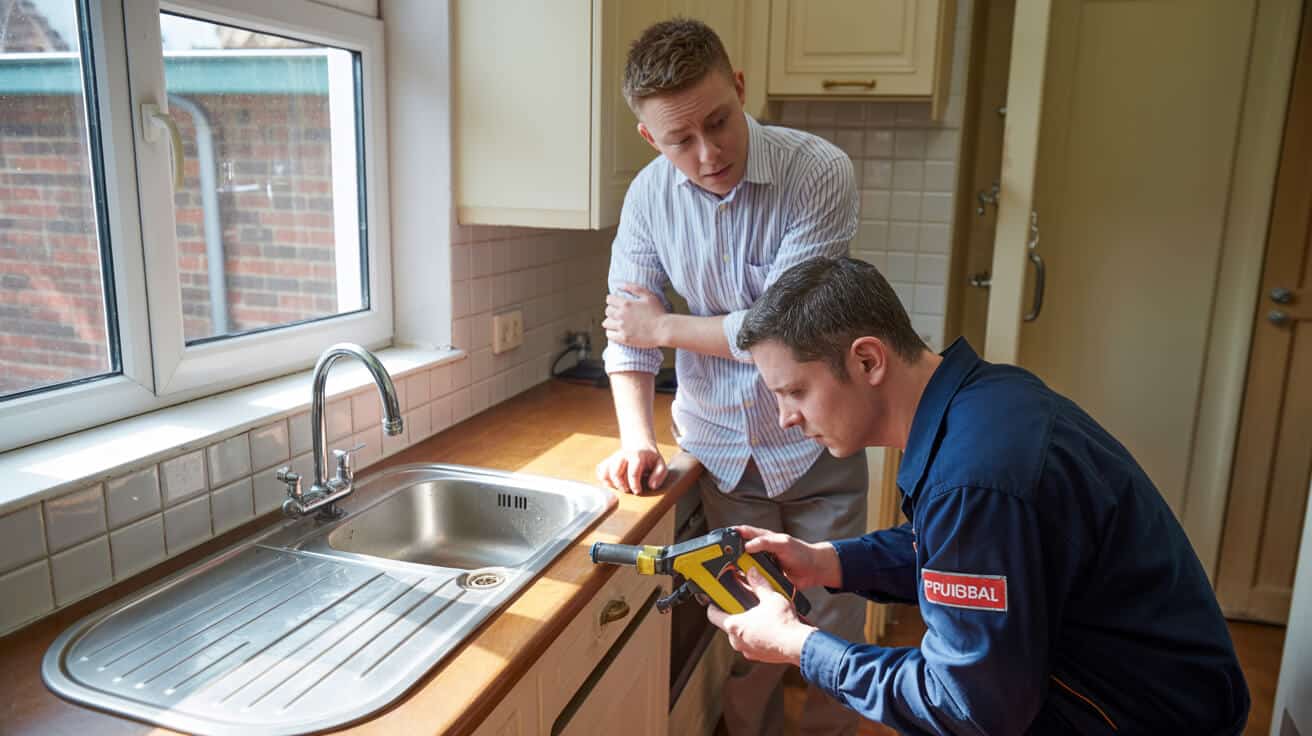
Standards have evolved. A single “job done” message is not proof. Today’s compliance climate expects:
- Initial tenant report: Date, time, and medium.
- Prompt written acknowledgment: —emailed or texted to the tenant.
- Engineer booking confirmation: Name/ID, date, qualifications attached.
- Work log with photos: Before, during, and after; date stamped.
- Parts fitted: Manufacturer name, part code.
- System handover: Instructions, warranty detail, tenant sign-off if possible.
- Final follow-up logs: Satisfaction, further queries, or unresolved issues.
Document every fix, every time—a consistent archive is your strongest protection in property disputes.
When a tenant triggers the Disrepair Protocol or council gets involved, your ability to immediately produce this chain can mean the difference between a minor fix or a full-scale enforcement action, especially in high-stakes HMOs.
Why Does the Law Demand Accredited and Insured Engineers?

Engineer credentials are a legal necessity, not an add-on. Any boiler or gas work—no matter how minor—demands Gas Safe certification. Unvented cylinders require G3 expertise. Plumbing supply installations should be WRAS approved. If compliance lapses, so do your certificates, your insurance, and any warranties attached to the system.
Your “Engineer Vetting” checklist:
- ID shown: verify Gas Safe/G3/WRAS numbers on the day
- Public liability or indemnity insurance: active and relevant to your works
- Qualification and experience: for specific system, not just “general plumbing”
- Job sheet: signed or digital, with all parts and steps recorded, plus handover to tenants and warranty details
A certified engineer is the only shield that matters. Unqualified repairs leave holes that cost thousands in claims and penalties.
A single call to Gas Safe or WRAS can confirm (or refute) an engineer’s current status—never risk your property or licence to save a few pounds on labour.
Is Your Emergency, Escalation and Aftercare Plan Fit for Modern Housing Regulation?
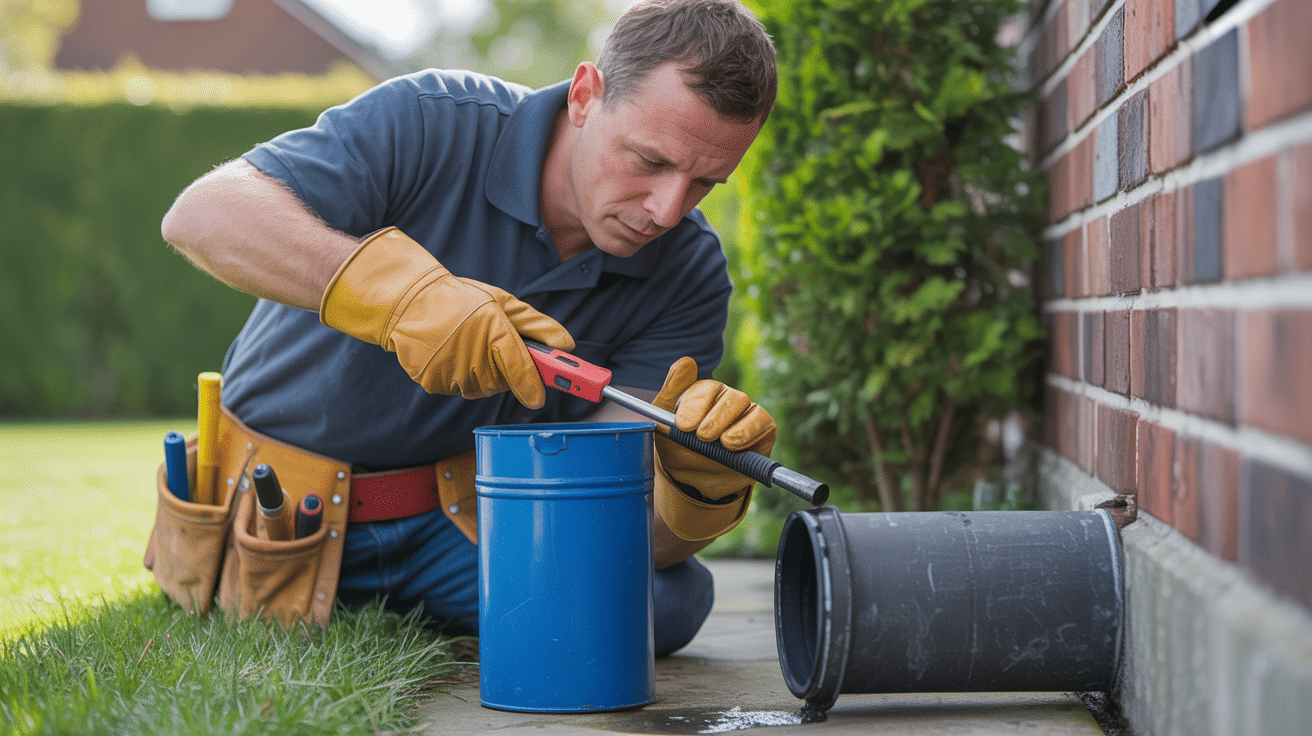
Being “reactive” isn’t enough. Regulations and legal precedent increasingly expect proactive, systematic plans covering:
- 24/7 engineer access: (or rapid escalation to emergency services)
- Prompt, template-based communication: for tenants at every stage (emergency acknowledgment, repair status, follow-up)
- Integrated digital repair logs: —at the handshake between site teams and office or agency, not left on paper slips
- Automatic renewal or booking reminders: for annual certifications, safety checks, and periodic maintenance
- Every engineer or contractor’s credentials centrally accessible: , not buried in old email threads or files
- Structured aftercare routines: maintenance visits, user instruction handover, satisfaction checks after every repair
With a visible aftercare and escalation process, nearly every dispute can be settled long before it risks your licence.
The landlords who build these processes in advance experience fewer penalties, shorter voids, and surprising levels of tenant loyalty. They’re rarely caught by surprise compliance visits, and are much less exposed to opportunistic or process-driven compensation claims from tenants or councils.
Why Proactive Maintenance Is the Landlord’s Secret to Fewer Claims and Smoother Tenancies
The most successful, stress-free landlords have one thing in common: they invest in prevention, not just repairs. Every annual service, pre-winter boiler check, or periodic maintenance call (including for plumbing, expansion tanks, and digital controls) reduces the risk of costly failures. For HMOs and high-rent commercial properties especially, compliance is not a one-time event but a continual, documented process.
Every hour spent on maintenance is a week saved in crisis management and legal hassle.
The real-world impact:
- Lower risk of urgent callouts: —serviced systems rarely fail at peak times
- Leaks, pressure drops, and small faults are fixed before escalation:
- Easy instant access to certificates and logs: —no panic during audits, complaints, or insurance claims
- Digital repair trails make compliance ready for SGE, council, or grant scenarios:
- Instructive tenant handbooks and proactive engagement: cut back unnecessary calls and repeat issues
Proactive landlords get more rent continuity—less downtime, less void, and almost never lose a legal claim on repair or compliance grounds.
Choose Plumbers 4U Today
Ready to put compliance, repairs, and smart documentation on autopilot? Plumbers 4U’s WRAS-approved, Gas Safe and G3-certified specialists handle every repair—emergency or planned—with watertight digital records, tenant-facing status updates, and total regulatory alignment. No corner-cutting, no paperwork panic—just all bases covered.
Repairs done right, compliance by default, and a digital paper trail ready for inspection.
Thousands of landlords, letting agents, and property managers across the UK trust Plumbers 4U to keep heating and water systems safe, licenced, and stress-free. Our streamlined workflows deliver before/after photos, engineer credentials, and instant compliance logs—ensuring your properties glide through every inspection, audit, or tenant handover.
Move from fire-fighting to future-proofing—choose Plumbers 4U and see compliance become an asset, not an anxiety.
Frequently Asked Questions
Why does UK law demand rapid landlord response to loss of heat or hot water, and what is considered “urgent”?
Restoring a working boiler or hot water supply is not open to landlord delay—the law treats these services as core health essentials that underpin tenant safety and well-being. Official guidance, reinforced by the Homes (Fitness for Human Habitation) Act 2018 and Public Health England, frames 24 hours as the “reasonable maximum” for restoring heat or hot water, especially during winter months or with vulnerable occupants present. In practice, this becomes an overnight deadline regardless of the cause, requiring landlords or agents to act the same day a tenant’s report arrives.
Missing this mark triggers compounding risks. Local authorities, when notified, can escalate within days if records show inaction or vague excuses instead of decisive steps (Booking a Gas Safe or G3 engineer, written updates, and logbook evidence). Case law confirms that regulators side with tenants when heating is absent for longer than a night, with courts upholding rent repayment orders and enforcement penalties.
Delay isn’t just a comfort issue—it’s a breach of duty that can erase months of your rental profit.
Immediate action steps for legally secure repairs
- Time-stamp tenant fault reports—reply with written confirmation (SMS, email, or managed app).
- Book a certified professional (Gas Safe for boilers, G3 for unvented cylinders) and store proof of appointment.
- Provide clear, dated updates to tenants explaining next repair steps—or proven supply chain delays if relevant.
- Arrange safe temporary heating at once if a repair will run past the first 24 hours.
- Store every interaction, booking, and photo in a searchable digital file for that address.
Landlords who build “cradle-to-repair” evidence for every urgent fix nearly eliminate the regulatory and legal bite of disputes.
Which compliance records and certificates does UK law expect landlords to keep for heating and hot water?
Landlords must maintain a live, address-linked record of every necessary compliance step, not just the CP12 Gas Safety Certificate issued yearly. For any gas appliance, you’ll need annual Gas Safe certification (CP12), retained for no less than two years and issued to tenants within 28 days (or ahead of a new tenancy). If your property has an unvented hot water cylinder, Building Regulations Part G requires a G3 commissioning certificate, completed by a certified engineer. HMO landlords are under stricter digital scrutiny—many councils now demand on-the-spot access to live compliance logs at routine inspections.
Tenancy deposit schemes and legal advisers increasingly look for timestamped repair logs and formal engineer paperwork—including before/after photographic proof and signed digital job sheets—if there’s ever a dispute. Insurance claims will insist that every repair followed the compliance chain, and warranties are nullified if paperwork is lapsed.
Primary documentation every landlord must maintain
| Certificate or Log | Who Issues It | Retention Rule |
|---|---|---|
| CP12 Gas Safety (all gas) | Gas Safe Registered engineer | Annually, 2 years min |
| G3 Unvented Cylinder Cert | G3 engineer, Building Control | Per instal/service, filed |
| Job Sheets (servicing/repair) | Accredited tradesperson | Each job, keep ongoing |
| Repair/Service photos | Engineer or landlord | Each event, keep ongoing |
| Communication log | Landlord/agent/tenant | Ongoing, digital preferred |
| Building Control sign-off | Local authority/engineer | Retain for lifetime |
A digital audit trail, tagged by property, is now best practice—making your records instantly searchable if council, tenant, or insurer challenges arrive.
What are the real-world consequences if boiler/hot water repair is mishandled or paperwork is incomplete?
Penalties for delayed urgent repairs can reach £30,000 per incident under the Housing and Planning Act 2016—with civil fines applied before any court intervention. The Homes (Fitness for Human Habitation) Act compels authorities to act rapidly if heat or hot water is missing, while tenants in licenced or HMO properties can escalate through “rogue landlord” lines. Lapsed CP12 certificates, lack of G3 compliance, or any repair carried out by non-qualified trades are all red flags for regulatory inspection—and can void insurance or local warranty claims.
Increasingly, letting agents and property managers are seeing Section 21 “no-fault” eviction rights thrown out by courts simply for having incomplete compliance logs at the moment a dispute arises. Missed records also risk “rent repayment orders” (forcing refund of six or more months’ rent), not to mention irreparable reputation loss within letting networks.
When paperwork lags your repairs, the councils and insurers always side with the tenant—the risks stack fast.
Core penalties and legal exposures
- Fines up to £30,000 per breach: issued by local authorities, often based purely on record review.
- Tenants can recover rent and force payment for distress/relocation when urgent works are slow.
- Section 21 (eviction) attempts voided if compliance gaps show up in court.
- Warranty and building insurance cover is lost if unaccredited repairs or missing certificates emerge during a claim.
- Serial compliance failure risks Register of Rogue Landlords inclusion, complicating future portfolio growth or licencing.
Being compliance-obsessed is no longer bureaucratic—it’s the foundation for stable, profitable property management.
How do landlords and agents create unbreakable evidence for every repair or service visit?
The formula is granular, property-specific documentation—modelled on audit, insurance, and regulatory checklists. For each urgent repair or scheduled service, record:
- The original tenant request (including timestamp and exact wording).
- The booking with a Gas Safe or G3 engineer (showing accreditation and anticipated arrival).
- Dated, geo-tagged before and after photos, attached to the specific job log.
- A completed job sheet signed by the engineer, listing all works, parts, and regulatory checks.
- Final confirmation to the tenant (as email, SMS, or app message), with the date/time the repair was demonstrated.
Cloud-based property software—used by leading firms—allows these artefacts to be indexed for instant recall at audit or licencing review, and exported directly if legal proceedings begin.
It isn’t enough to ‘do the job right’—you must prove every repair stands up to a council, a court, and your own insurer.
Table: The digital compliance shield for property managers
| Evidence | Provided By | Proves |
|---|---|---|
| Time-stamped alert | Tenant/manager | Prompt action |
| Booking confirmation | Engineer | Professional compliance |
| Repair photos | Engineer/landlord | Job completion, claim proof |
| Job sheet/report | Certified engineer | Regulatory, warranty status |
| Tenant sign-off | Tenant (if present) | Satisfaction, dispute cover |
One system, one property: when filings are digital, you win time, confidence, and audit control.
Does employing a handyman or using “as-is” contract language ever protect landlords from legal fallout?
UK statutes override DIY, “handyman,” or “as is” lease clauses whenever safety-critical heating or hot water is at stake. Landlord and Tenant Act 1985 and new “Fitness for Human Habitation” laws specify you’re personally liable for professional repair and certification—no contract clause can shift this. Only Gas Safe-registered engineers (for boilers/gas), G3 engineers (for unvented hot water), and WRAS/WaterSafe pros (for water supply modifications) are legally recognised.
Courts, councils, and insurers flatly ignore any “DIY” or “we agreed handyman” excuse—unqualified repairs can lead directly to letting bans, rent repayment, and prosecution, especially if harm to a tenant results. Most tenant associations and licencing authorities will proactively inspect accreditation and look for digital evidence chains.
Hiring anyone but an approved specialist is gambling with your property—it’s the kind of risk that never pays off.
When compliance can’t be waived or outsourced
- Any “DIY clause” or verbal work-around is overruled the moment hot water or heating fails.
- HMO and licencing regimes audit digital compliance logs; gaps are flagged instantly.
- Non-certed work triggers insurer and warranty refusal at claim or audit time.
- Accidental landlords face even stricter scrutiny, as ignorance of law is never accepted.
- Letting agencies may suspend management for persistent violations, per new RICS guidance.
Stick to certified trades, build your audit trail, and protect your letting rights at every turn.
Which proactive compliance strategies keep landlords resilient and audit-ready in the year ahead?
Top-performing landlords are shifting to scheduled, tagged engineer visits—well ahead of regulatory deadlines, not scrambling after tenant alerts. Annual CP12 and G3 compliance works booked before autumn create operational space and smooth engineer scheduling. Ditching email-only storage for cloud-based, address-led compliance logs makes every property audit-ready within minutes. Tenants are being handed quick-report guides (for low pressure, leaks, failed ignition), empowering them to signal issues before winter “repair rush” bottlenecks strike.
Services like Plumbers 4U deliver certified repairs within 24 hours, with paperwork, photos, and compliance logs uploaded as part of every job—so the gap between “problem” and “proof” vanishes. Landlords able to show a rolling evidence chain per property are passing random council audits, insurance demands, and letting checks—while letting competitors are side-lined by missing paperwork or slow callout response.
The landlords getting higher rents and five-star reviews aren’t just lucky—they’re the ones who never scramble for compliance. They built it into their system.
Blueprint: Year-round audit fitness for landlords & property managers
- Pre‑book every certificate and major service before autumn to avoid seasonal logjams.
- Migrate all compliance records (CP12, G3, job sheets) into a cloud-based, address-linked log.
- Provide tenants with a simple, rapid fault-report tool and encourage use.
- Partner only with services that offer digital handovers and audit-tracked repairs.
- Build compliance reporting into every handover—use digital logs, not memory, for proof.
Fortify your rental income, audit-proof your letting rights, and boost property value—schedule a compliance check or repair with Plumbers 4U for a service where every document, every engineer, and every record keeps your business future‑ready.

